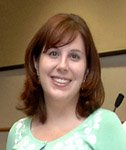
by Sui Lang Panoke
WASHINGTON, D.C.--Is access to graduate education exclusive to the upper class?
As a first-year graduate student struggling to make ends meet, I believe the answer to this question is yes. In my experience, searching for funding to pay the extensive costs of my higher education has been an upward climb leading only to dead ends.
I am a single mother who qualifies for the maximum amount in federal aid for graduate students. However, this amount barely covers my tuition, and the costs of housing, books, and living expenses are left entirely to me.
I have no college fund, trust, or inheritance. I don’t independently qualify for private student loans because I lack the substantial credit or the employment history that is required, and I do not have the luxury of having a willing and eligible co-signer. Furthermore, I can only work part-time jobs while in school in order to qualify for childcare assistance.
READ MORE
--------------------------------------------------------------------------------
Panoke is a first-year graduate student at American University. She is working towards a Master’s degree in Public Administration with a certificate in Women, Policy, and Political Leadership through the Women & Politics Institute.
